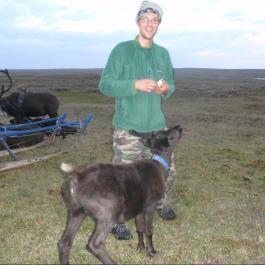
Rémy Rouillard began his research career as an anthropologist studying the ways of life and interactions between indigenous Nenets reindeer herders and Russian oil workers in the oil-rich Nenets Autonomous District, in the Russian Arctic. In collaboration with Arn Keeling, Aytalina Ivanova, Florian Stammler, and Sophie Thériault, he will now conduct a comparative project examining the legal frameworks and practices surrounding mining operations in three regions of the circumpolar world: Nunatsiavut, in Newfoundland; the Kiruna municipality, in northern Sweden, and Yakutia, in Russia. The goal of this project will be to establish a comparison between the theory and practice of consultation, negotiation of consent (or the absence thereof) and agreements between local/indigenous actors, the state, and industrial companies. Central to this study will be an examination of the interactions between the state, mining companies and local indigenous and non-indigenous actors. In a context often described as neoliberal, he will examine how negotiations and consent surrounding mining operations are associated with particular forms of interactions between these actors as private companies are increasingly responsible for the provision of welfare, namely through the use of corporate social responsibility initiatives or impact-benefit agreements. By comparing these three cases, this international project will generate practical and theoretical knowledge relevant to the researchers and indigenous partners of the MinErAl Network. Most importantly, this project will help to identify and highlight promising avenues and approaches to consultation in the context of resource extraction in regions inhabited by indigenous peoples.


